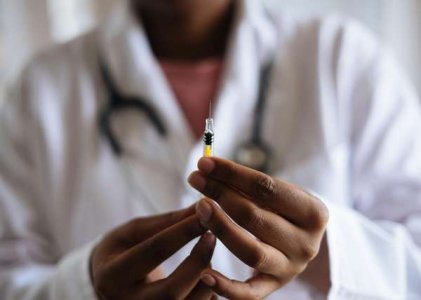Update: CDC urges caution on vaccines for this unfamiliar mosquito-borne illness —Here’s what’s changed.
- Replies 0
In a new twist to a story we first brought to your attention back in February, US health officials are now advising travelers aged 60 and older to delay receiving the chikungunya vaccine, as investigations continue into its potential side effects.
The Centers for Disease Control and Prevention (CDC) and Food and Drug Administration (FDA) jointly issued an update last week regarding the Ixchiq vaccine, manufactured by Valneva—the first and only chikungunya vaccine approved for use in the United States.
What Is Chikungunya, and Why Should You Care?
Chikungunya (pronounced “chik-en-GOON-ya”) is a viral disease spread by the same mosquitoes that carry dengue and Zika.
While it’s rare in the US, it’s much more common in tropical and subtropical regions. Although uncommon in the US, around 100-200 cases are reported each year, mostly from travelers returning from the abovementioned tropical regions.
The symptoms? Chikungunya is notorious for causing sudden, high fever and severe joint pain—sometimes so intense it can last for weeks or even months.
Other symptoms can include headache, muscle pain, rash, and fatigue. While most people recover fully, older adults and those with underlying health conditions may be at higher risk for complications.

Why the CDC Is Urging Caution for Older Travelers
Last year, the CDC began recommending a new vaccine called Ixchiq for adults traveling to areas where chikungunya is common.
The vaccine uses a live, weakened form of the virus to help your body build immunity.
However, recent concerns have emerged: at least six individuals aged 65 and older, most with preexisting medical conditions, developed serious neurological or cardiac symptoms within a week of receiving the vaccine.
Over a dozen similar reports have surfaced globally, prompting intensified safety reviews. In response, an advisory panel to the CDC is now recommending that adults 65 and older be warned of these potential risks before receiving the vaccine.
Also read: Exploring the impact of vaccines: examining RFK Jr.'s vaccine claims
"This topic will be addressed at an upcoming meeting of the Advisory Committee on Immunization Practices (ACIP). Healthcare providers are encouraged to discuss the benefits and risks of vaccination with individual travelers, considering factors such as age, destination, trip length, and planned activities," the CDC’s online notice stated.
Another Vaccine Option on the Horizon?
In light of the concerns, the CDC’s advisory group has also recommended authorizing a second vaccine—Vimkunya, made by Bavarian Nordic—for people aged 12 and older traveling to areas experiencing active outbreaks.
While the CDC has not yet confirmed whether it will adopt this recommendation, it could offer an alternative for those uneasy about Ixchiq or in higher-risk age groups.
This vaccine is not yet available in the US, but it could offer another option in the future, pending CDC approval.
Source: WION / Youtube.
Where Is Chikungunya Found?
Chikungunya continues to pose a serious threat in tropical and subtropical regions, particularly in areas where Aedes mosquitoes thrive—the same mosquitoes known for spreading dengue and Zika.
Here’s where the virus is most common:
What Should Travelers Do?
If you're planning a trip to any of the regions listed above, speak with your healthcare provider before getting vaccinated—especially if you're over 60 or have underlying health conditions.
Infectious disease expert Dr. William Schaffner emphasized that this is a case of the system working as intended, "The CDC’s vaccine monitoring system is working as it should."
He also noted that the investigation is still in progress and urged caution, not panic.
Stay Informed, Stay Safe
Valneva, the manufacturer of Ixchiq, has stated that no unexpected safety issues have emerged from ongoing surveillance and that the observed side effects align with clinical trial data.
Source: MedEvidence Articles / Youtube.
Still, the CDC is encouraging healthcare providers and the public to report any adverse reactions through the Vaccine Adverse Event Reporting System (VAERS) to continue monitoring safety.
Before traveling, discuss your destination and health history with your healthcare provider. They’ll help you weigh the risks and benefits of vaccination and other preventive measures.
Keep an eye on CDC updates about chikungunya vaccines, especially if you’re over 65 or have chronic health conditions.
And whether you’re vaccinated or not, mosquito bite prevention is your best defense. Here’s how:
Here at The GrayVine, we’re committed to following this story closely. Whether you're a frequent traveler or just trying to stay on top of your health decisions, we’ll make sure you get the facts that matter.
In earlier news: Breaking: The CDC is investigating this vaccine—are you at risk after recent hospitalizations?

Do you have tips for staying healthy while traveling? Are you considering the chikungunya vaccine? Have you experienced symptoms after travel or vaccination? Drop a comment below!
The Centers for Disease Control and Prevention (CDC) and Food and Drug Administration (FDA) jointly issued an update last week regarding the Ixchiq vaccine, manufactured by Valneva—the first and only chikungunya vaccine approved for use in the United States.
What Is Chikungunya, and Why Should You Care?
Chikungunya (pronounced “chik-en-GOON-ya”) is a viral disease spread by the same mosquitoes that carry dengue and Zika.
While it’s rare in the US, it’s much more common in tropical and subtropical regions. Although uncommon in the US, around 100-200 cases are reported each year, mostly from travelers returning from the abovementioned tropical regions.
The symptoms? Chikungunya is notorious for causing sudden, high fever and severe joint pain—sometimes so intense it can last for weeks or even months.
Other symptoms can include headache, muscle pain, rash, and fatigue. While most people recover fully, older adults and those with underlying health conditions may be at higher risk for complications.

The US government is advising travellers aged 60 and older to delay receiving the chikungunya vaccine while potential side effects are investigated. Image source: RF._.studio_ / Pexels.
Why the CDC Is Urging Caution for Older Travelers
Last year, the CDC began recommending a new vaccine called Ixchiq for adults traveling to areas where chikungunya is common.
The vaccine uses a live, weakened form of the virus to help your body build immunity.
However, recent concerns have emerged: at least six individuals aged 65 and older, most with preexisting medical conditions, developed serious neurological or cardiac symptoms within a week of receiving the vaccine.
Over a dozen similar reports have surfaced globally, prompting intensified safety reviews. In response, an advisory panel to the CDC is now recommending that adults 65 and older be warned of these potential risks before receiving the vaccine.
Also read: Exploring the impact of vaccines: examining RFK Jr.'s vaccine claims
"This topic will be addressed at an upcoming meeting of the Advisory Committee on Immunization Practices (ACIP). Healthcare providers are encouraged to discuss the benefits and risks of vaccination with individual travelers, considering factors such as age, destination, trip length, and planned activities," the CDC’s online notice stated.
Another Vaccine Option on the Horizon?
In light of the concerns, the CDC’s advisory group has also recommended authorizing a second vaccine—Vimkunya, made by Bavarian Nordic—for people aged 12 and older traveling to areas experiencing active outbreaks.
While the CDC has not yet confirmed whether it will adopt this recommendation, it could offer an alternative for those uneasy about Ixchiq or in higher-risk age groups.
This vaccine is not yet available in the US, but it could offer another option in the future, pending CDC approval.
Source: WION / Youtube.
Where Is Chikungunya Found?
Chikungunya continues to pose a serious threat in tropical and subtropical regions, particularly in areas where Aedes mosquitoes thrive—the same mosquitoes known for spreading dengue and Zika.
Here’s where the virus is most common:
- Africa: Nigeria, Senegal, Kenya, DRC
- Asia: India, Sri Lanka, Thailand, Indonesia, Myanmar, Philippines
- Americas: Caribbean nations (like Puerto Rico and Haiti), Central America, and large outbreaks in Brazil, Colombia, Venezuela, and Honduras
- Pacific: Fiji, Samoa, Papua New Guinea, Solomon Islands
- US: No large-scale outbreaks yet, but travel-related cases are regularly reported, especially in Florida and Texas, where mosquito populations could support local transmission
What Should Travelers Do?
If you're planning a trip to any of the regions listed above, speak with your healthcare provider before getting vaccinated—especially if you're over 60 or have underlying health conditions.
Infectious disease expert Dr. William Schaffner emphasized that this is a case of the system working as intended, "The CDC’s vaccine monitoring system is working as it should."
He also noted that the investigation is still in progress and urged caution, not panic.
Stay Informed, Stay Safe
Valneva, the manufacturer of Ixchiq, has stated that no unexpected safety issues have emerged from ongoing surveillance and that the observed side effects align with clinical trial data.
Source: MedEvidence Articles / Youtube.
Still, the CDC is encouraging healthcare providers and the public to report any adverse reactions through the Vaccine Adverse Event Reporting System (VAERS) to continue monitoring safety.
Before traveling, discuss your destination and health history with your healthcare provider. They’ll help you weigh the risks and benefits of vaccination and other preventive measures.
Keep an eye on CDC updates about chikungunya vaccines, especially if you’re over 65 or have chronic health conditions.
And whether you’re vaccinated or not, mosquito bite prevention is your best defense. Here’s how:
- Use EPA-registered insect repellents with DEET, picaridin, or oil of lemon eucalyptus.
- Wear long sleeves, pants, and socks—especially at dawn and dusk.
- Stay in accommodations with air conditioning or screens on windows and doors.
- Use mosquito nets if you’re sleeping outdoors or in unscreened rooms.
- Remove standing water around your lodging to reduce mosquito breeding.
Here at The GrayVine, we’re committed to following this story closely. Whether you're a frequent traveler or just trying to stay on top of your health decisions, we’ll make sure you get the facts that matter.
In earlier news: Breaking: The CDC is investigating this vaccine—are you at risk after recent hospitalizations?
Key Takeaways
- The US government is advising travellers aged 60 and older to delay receiving the chikungunya vaccine while potential side effects are investigated.
- Chikungunya is a mosquito-borne disease that causes severe joint pain and fever, with most US cases linked to international travel.
- Concerns have arisen after several people aged 65 and over developed serious neurological or cardiac symptoms soon after being vaccinated with Ixchiq, prompting calls for caution and further review.
- The CDC is considering authorization of a second vaccine, and both US and European health agencies are reviewing the vaccine’s safety for older adults travelling to areas where chikungunya is common.
Do you have tips for staying healthy while traveling? Are you considering the chikungunya vaccine? Have you experienced symptoms after travel or vaccination? Drop a comment below!






